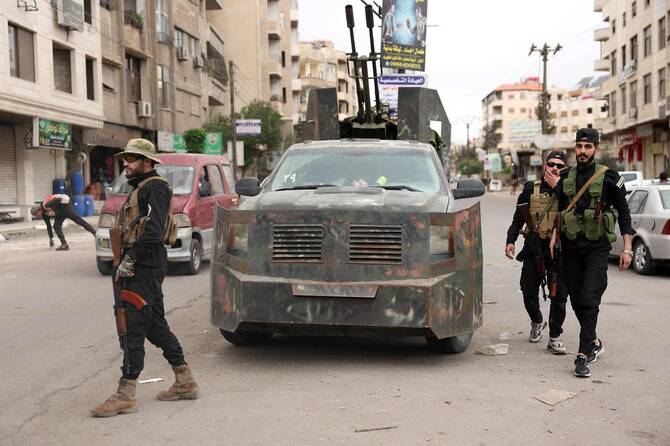PARIS: Every day at the Paris court trying ex-president Nicolas Sarkozy over alleged corruption with Libyan dictator Muammar Qaddafi, the journalists who helped uncover the extraordinary allegations are following proceedings.
Fabrice Arfi and Karl Laske have spent 14 years documenting the links between Sarkozy’s entourage and the late Qaddafi, who is alleged to have funded the rightwinger’s 2007 election campaign with cash and offshore bank accounts.
The pair from the Mediapart news outlet have traveled the world for secret meetings with sources, tracked money to a host of tax havens, and been sued five times over their reporting — always unsuccessfully.
What is arguably the most shocking corruption trial in modern French history is the pinnacle of their work, sparking pride but also pressure for a duo with a track record in uncovering financial crime. “When you see a former president and three former ministers sat together on four folding chairs, with the justice system asserting ‘you were corrupted by a dictator,’ you know you are a witness to a historic event,” Arfi said in an interview.
“I don’t know what the outcome will be — it’s not down to me to say if they will be found guilty or not — but it shows that our work was not for nothing.”
Pushed on whether he thought the trial would have taken place without his and Laske’s relentless digging, he awkwardly conceded that “they played a role.”
“With all due modesty, without our investigation, prosecutors might not have opened their case,” added Arfi, the 43-year-old son of a police officer whose regular scoops have helped turn Mediapart into a profitable independent news site.
The Libya investigation began in 2011 when an individual contacted the newsroom, offering confidential information.
Arfi and Laske traveled abroad — Arfi withholds all of the details to protect the source — and received a computer hard drive said to belong to an infamous Franco Lebanese arms dealer called Ziad Takieddine.
When they returned to their hotel, they realized they had been given a potential goldmine — “Ali Baba’s cave,” Arfi says — containing Takieddine’s personal diary, emails, bank transfers and even photographs.
While French investigators were already looking at Takieddine’s role as a middleman in French arms deals in the 1990s, Arfi and Laske began verifying and confirming his more recent dealings with Qaddafi.
“We didn’t understand everything to start with. There are bits that are like pieces of the puzzle that only make sense once you have found the others,” he explained.
The first articles on Takieddine’s ties to Sarkozy allies made a few waves but the allegations would become more serious as Arfi and Laske dug deeper.
In 2012, during the presidential election campaign in which Sarkozy was seeking a second term, they published a document that caused a political earthquake — and a lot of professional soul-searching.
“We published in the middle of an election campaign, which is a difficult time for a news outlet,” Arfi explained. “But withholding it would have been worse.”
The document, handed over by a source with access to Libyan archives after the 2011 fall of Qaddafi, purported to show an offer of $50 million from the dictator to fund Sarkozy’s campaign, signed and stamped by Libyan intelligence chief Moussa Koussa. Sarkozy lost the election and sued, alleging the document was fake.
It, along with other evidence unearthed by Mediapart, will be presented during the trial which is scheduled to last until April 10.
Takieddine’s hard drive was also handed over to police by Arfi’s source.
Sarkozy, 69, alleges that he is the victim of a conspiracy between politically biased judges, police and left-leaning Mediapart.
In his first comments in court last week, Sarkozy called Arfi and Karl Laske “thugs” and angrily told judges that “you will never ever find a single euro, a single Libyan cent in my campaign.”
Arfi claims Sarkozy has been successful in deflecting public attention, using the same playbook as other right-wing populists.

























